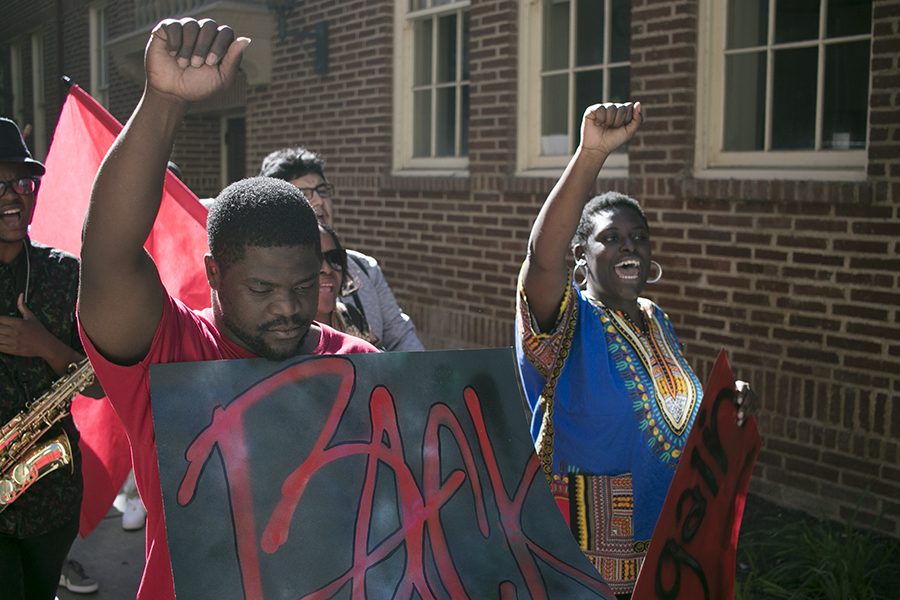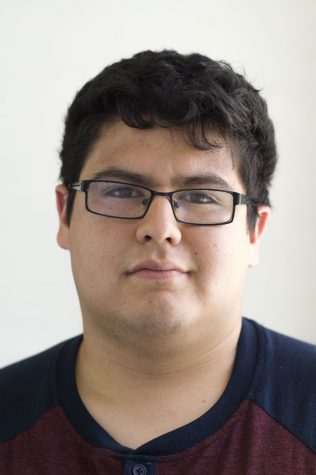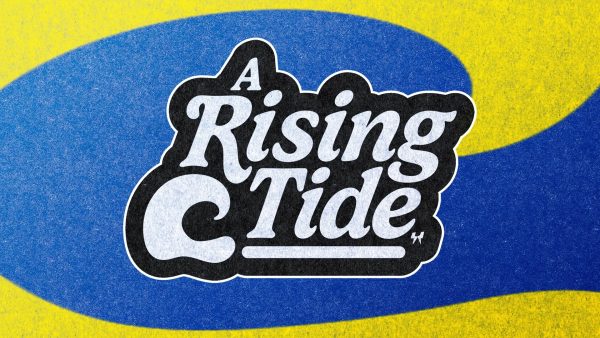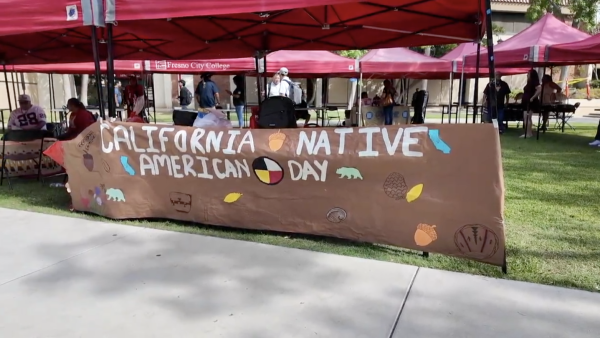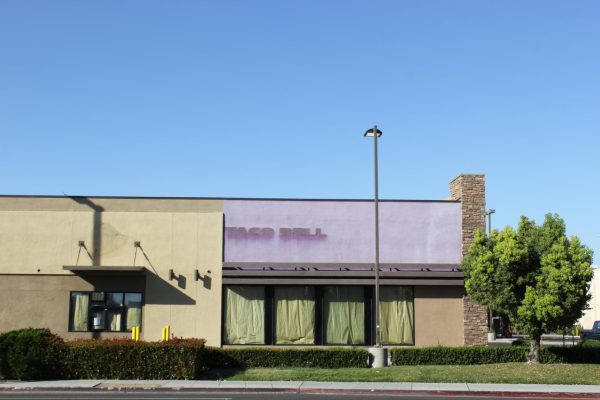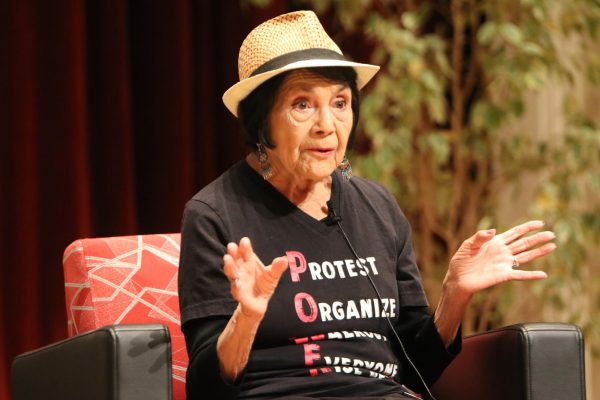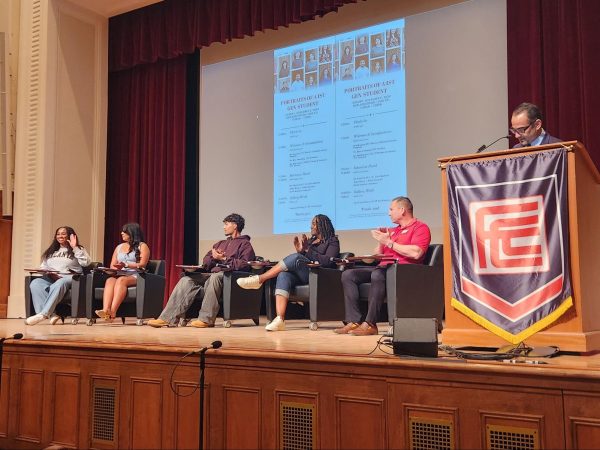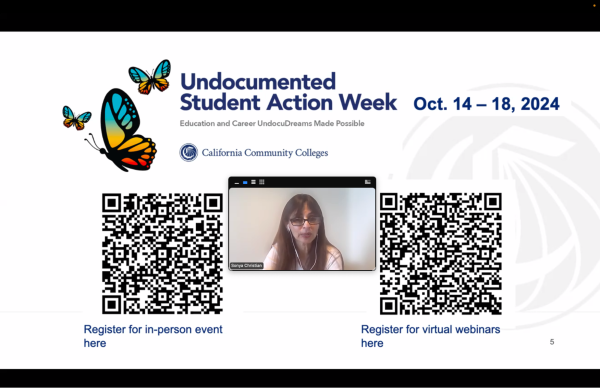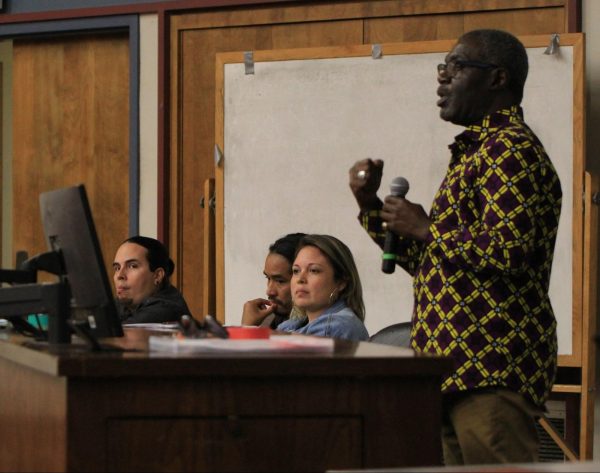Black Awareness and Inclusivity on the FCC Campus
Photo by: Larry Valenzuela
Pan AfriKan Student Union leads a march through Fresno City College campus and through the Historically Black Colleges and Universities (HBCU) College Fairon on Monday, Nov. 5, 2018.
There was a triad of events on the FCC campus meant to raise awareness and promote inclusivity for the black community as well as other communities on Monday, Nov. 5.
These three events included the Historically Black Colleges and Universities (HBCU) College Fair hosted by the SYMBAA and Idile programs in partnership with the FCC Transfer Center; the Bringin’ Black Back Again event presented by the Pan AfriKan Student Union (PASU); and the Black Minds Matter Session 5: Ascription of Intelligence by J. Luke Wood.
Second Annual Bringin’ Back Black Again Rally
“When black lives are under attack, we stand up, fight back,” chanted the PASU students as they marched throughout the FCC campus.
Alexandria Benn, this year’s PASU President said the obvious lack of unity on campus, and the hesitation for students to communicate, especially black students, led them to organize the rally.
“We want to rediscover who we are, where we came from and where we’re going. So Bringin’ Black Back Again is (centralized) here. So what we’ll be having today is open mic; I’m doing my poetry. We’ll be having singing and dancing of all types and we’ll be having a lot of people from different backgrounds. And we’ll have a march around campus “
“Meeting times are every Thursday at 3:30 to 4:30. You don’t have to be black to really just want to look into different cultures and see what we’re about. The only thing that break down barriers is to take that leap of faith,” said Benn.
The Third Annual HBCU College Fair
“HBCUs have a rich tradition going back over 100 years. Many of these campuses are small schools that provide a tight-knit community with a lot of support,” said David Shoemaker, Transfer Center Counselor and Coordinator.
There were 21 HBCUs in attendance ranging from private and public universities.
According to Rodney Murphy, counselor and instructor for the SYMBAA and Idile programs, the community college district formed an agreement with the HBCUs which guarantees admission with them.
Admission is guaranteed for students with a minimum of 2.5 GPA and 30 transferable units.
“All the schools coming participate in the California Transfer Guarantee,” Shoemaker said.
Murphy says the HBCUs wanted to increase participation and diversify student enrollment. “Their main focus is to rid the stigma or misconception that HBCUs are just for black students only,” said Murphy.
The caravan had its first stop here in 2016 and according to Shoemaker, other community colleges and local high schools are invited to send students to attend.
“Many industries come to HBCUs to recruit their students and there is over-representation of HBCU graduates in the workplace-they are very successful,” said Shoemaker.
The Umoja Community, a statewide organization, which is the umbrella that SYMBAA and Idile are under has been instrumental in their partnership with the HBCU Caravan Stops. The caravan stops happen in the Spring and Fall Semesters.
It is important for interested students to note that the application for HBCUs is one single application. The HBCU application is also a separate application than the Cal Apply application.
The HBCUs application deadlines vary but are usually in March or April for general admissions, but to be considered for scholarships, you have to apply by Dec. 1st.
Black Minds Matter: Ascription of Intelligence
FCC had the pleasure to host a replay of the original Black Minds Matter broadcast created by J.Luke Wood, Ph. D, this fall, geared mostly at FCC staff.
Wood, “Dedicated the last 15 years to extensive research and work into guiding the graduation rates and academic performance and figure out why low graduation rates exist,” said Mr. Rodney Murphy when introducing the fifth part of the series.
The Black Minds Matter is a sister cause to Black Lives Matter, and its purpose is to help instructors understand and build a sensitivity to the struggles young black men face in education.
“I think their goal is to raise national consciousness about issues faced by young black men. And different strategies and solutions to address these issues,” said Murphy.
The main theme was to help instructors and institution officials understand how to be sensitive to these issues by understanding their biased, subtle snubs that may be perceived as demeaning, insulting or degrading which may even occur unconsciously when dealing with young black men.
Many young black men are fearful to even engage in school discussions or instruction sessions because of fear of being perceived as “dumb, ignorant or stupid,” Wood said.
The main supplemental practices for instructors to adopt to encourage an atmosphere of free learning is to focus on “student success, effective and engaging practices, and relational issues such as trust, respect and authentic care,” Wood said.
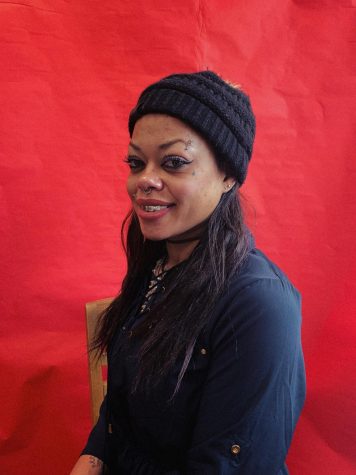
Tamika Angie Rey is a 32-year-old second year college student who is striving to become a professional journalist. She is currently majoring in journalism...

